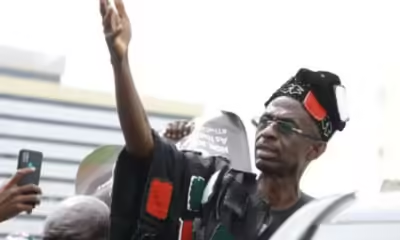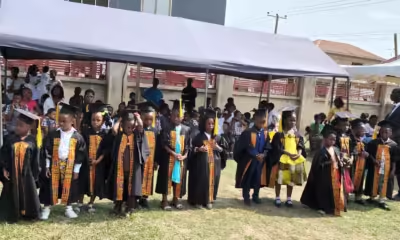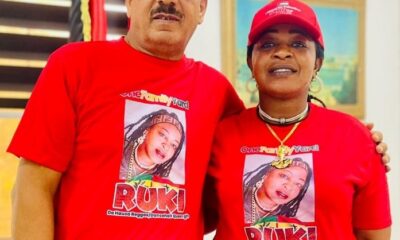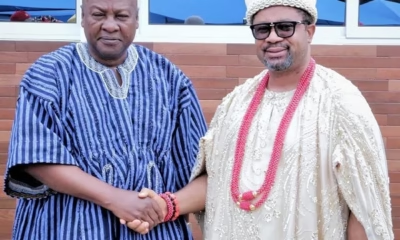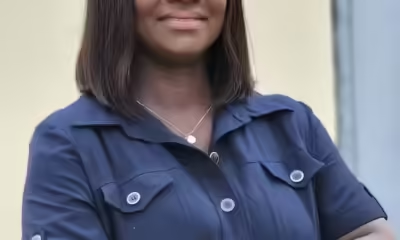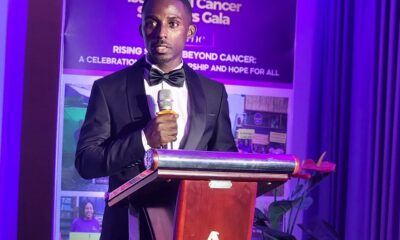News
The whole of the cocoa fruit can now be used to make chocolate and reduce sugar. Have Swiss scientists made a chocolate breakthrough?
Published
8 months agoon

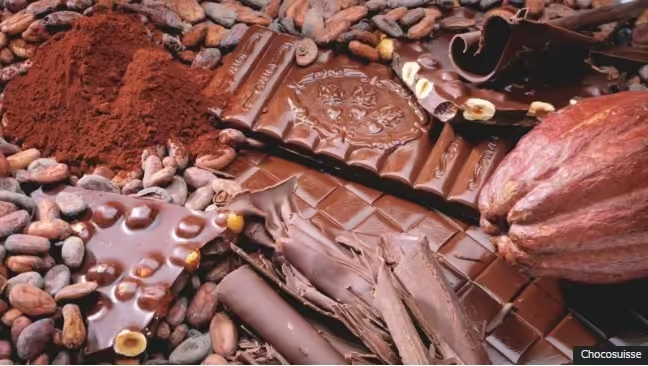
That’s what chocolate producers have traditionally done with the cocoa fruit – used the beans and disposed of the rest.
But now food scientists in Switzerland have come up with a way to make chocolate using the entire cocoa fruit rather than just the beans – and without using sugar.

The chocolate, developed at Zurich’s prestigious Federal Institute of Technology by scientist Kim Mishra and his team includes the cocoa fruit pulp, the juice, and the husk, or endocarp.
The process has already attracted the attention of sustainable food companies.
They say traditional chocolate production, using only the beans, involves leaving the rest of the cocoa fruit – the size of a pumpkin and full of nutritious value – to rot in the fields.
The key to the new chocolate lies in its very sweet juice, which tastes, Mr Mishra explains, “very fruity, a bit like pineapple”.
This juice, which is 14% sugar, is distilled down to form a highly concentrated syrup, combined with the pulp and then, taking sustainability to new levels, mixed with the dried husk, or endocarp, to form a very sweet cocoa gel.
The gel, when added to the cocoa beans to make chocolate, eliminates the need for sugar.
Mr Mishra sees his invention as the latest in a long line of innovations by Swiss chocolate producers.

In the 19th Century, Rudolf Lindt, of the famous Lindt chocolate family, accidentally invented the crucial step of “conching” the chocolate – rolling the warm cocoa mass to make it smooth and reduce its acidity – by leaving a cocoa mass mixer running overnight. The result in the morning? Deliciously smooth, sweet chocolate.
“You need to be innovative to maintain your product category,” says Mr Mishra. “Or… you will just make average chocolate.”
Mr Mishra was partnered in his project by KOA, a Swiss start-up working in sustainable cocoa growing. Its co-founder, Anian Schreiber, believes using the entire cocoa fruit could solve many of the cocoa industry’s problems, from the soaring price of cocoa beans to endemic poverty among cocoa farmers.
“‘Instead of fighting over who gets how much of the cake, you make the cake bigger and make everybody benefit,” he explains.
“The farmers get significantly extra income through utilising cocoa pulp, but also the important industrial processing is happening in the country of origin. Creating jobs, creating value that can be distributed in the country of origin.”
Mr Schreiber describes the traditional system of chocolate production, in which farmers in Africa or South America sell their cocoa beans to big chocolate producers based in wealthy countries as “unsustainable”.
The model is also questioned by a new exhibition in Geneva, which explores Switzerland’s colonial past.
To those who point out that Switzerland never had any colonies of its own, chocolate historian Letizia Pinoja counters that Swiss mercenary soldiers policed other countries’ colonies, and Swiss ship owners transported slaves.
Geneva in particular, she says, has a particular link to some of the most exploitative phases of the chocolate industry.
“Geneva is a hub for commodity trade, and since the 18th Century, cocoa was reaching Geneva and then the rest of Switzerland to produce chocolate.
“Without this commodity trade of colonial goods, Switzerland could never have become the land of chocolate. And cocoa is no different from any other kind of colonial good. They all came from slavery.”
Nowadays, the chocolate industry is much more highly regulated. Producers are supposed to monitor their entire supply chain to make sure there is no child labour. And, from next year, all chocolate imported to the European Union must guarantee that no deforestation took place to grow the cocoa used in it.
But does that mean all the problems are solved? Roger Wehrli, director of the association of Swiss chocolate manufacturers, Chocosuisse, says cases of child labour and deforestation remain, particularly in Africa. He fears that some producers, in a bid to avoid the challenges, are simply shifting their production to South America.
“Does this solve the problem in Africa? No. I guess it would be better for responsible firms to stay in Africa and help to improve the situation.”
That is why Mr Wehrli sees the new chocolate developed in Zurich as “very promising… If you use the whole cocoa fruit, you can get better prices. So it’s economically interesting for the farmers. And it’s interesting from an ecological point of view.”
The link between chocolate production and the environment is also stressed by Anian Schreiber. A third of all farm produce, he says, “never ends up in our mouths”.
Those statistics are even worse for cocoa, if the fruit is abandoned to use only the beans. “It’s like you throw away the apple and just use its seeds. That’s what we do right now with the cocoa fruit.”
Food production involves significant greenhouse gas emissions, so reducing food waste could also help to tackle climate change. Chocolate, a niche luxury item, may not by itself be a huge factor, but both Mr Schreiber and Mr Wehrli believe it could be a start.
Advertisement
But, back in the laboratory, key questions remain. How much will this new chocolate cost? And, most important of all, without sugar, what does it really taste like?
The answer to the last question, in this chocolate-loving correspondent’s view, is: surprisingly good. A rich, dark but sweet flavour, with a hint of cocoa bitterness that would fit perfectly with an after dinner coffee.
The cost may remain something of a challenge, because of the global power of the sugar industry, and the generous subsidies it receives. “The cheapest ingredient in food will always be sugar as long as we subsidise it,” explains Kim Mishra. “For a… tonne of sugar, you pay $US500 [£394] or less.” Cocoa pulp and juice cost more, so the new chocolate would, for now, be more expensive.
Nevertheless, chocolate producers in countries where cocoa is grown, from Hawaii to Guatemala, to Ghana have contacted Mr Mishra for information about the new method.
In Switzerland, some of the bigger producers – including Lindt – are starting to use the cocoa fruit as well as the beans, but none, so far, has taken the step of eliminating sugar completely.
“We have to find daring chocolate producers who want to test the market and are willing to contribute to a more sustainable chocolate,” says Mr Mishra. “Then we can disrupt the system.”
Perhaps those daring producers will be found in Switzerland, whose chocolate industry makes 200,000 tonnes of chocolate each year, worth an estimated $US2bn. At Chocosuisse, Roger Wehrli sees a more sustainable, but still bright, future.
“I think chocolate will still taste fantastic in the future,” he insists. “And I think the demand will increase in the future due to the growing world population.”
And will they be eating Swiss chocolate? “Obviously,” he says.
source: Imogen Foulkes / Geneva Correspondent, BBC News
You may like


Tooth decay cases rises in Tema


Cake Tekniks holds 59th graduation ceremony


Volta College Foundation donates GH¢9,000 to 9-yr-old fire victim


ICU holds Greater Accra regional youth, women confab


Beyond the cross: The role of women in Easter story


Empress Gifty to thrill patrons at MTN Stands In Worship on Easter Sunday

Dr Kakra Bonsu Appiah, Head of the Dental and Oral Surgery Department at the Tema General Hospital, says tooth decay has become the most common dental problem affecting residents of Tema.
Dr Appiah mentioned that there have been more patients reporting with cavities, toothaches, and other complications linked to poor oral hygiene.
He told the Ghana News Agency (GNA) in an interview that tooth decay was caused by the breakdown of the tooth’s structure due to acids produced by bacteria in the mouth, which thrive on sugary foods and poor brushing habits, making good oral hygiene practices essential in preventing the disease.
“The most common cause of dental caries is poor oral hygiene. When you look at how dental caries form, you will understand that poor oral hygiene is the leading cause of dental caries; it is about leaving food debris around the teeth,” he stated.
Dr Appiah explained that many of the cases presented at the hospital could have been avoided through regular brushing, proper diet, and timely dental check-ups, emphasising that maintaining oral health was not just about having clean teeth but also plays a critical role in overall well-being.
He advised residents to brush their teeth at least twice a day with fluoride toothpaste, floss regularly to remove food particles between teeth, and reduce the intake of sugary snacks and drinks, as well as visit the dentist twice a year.
The dentist also expressed concern that people only visited the hospital when the pain became unbearable, urging Ghanaians to visit the dentist regularly to prevent emergencies.
Dr Appiah further appealed to parents to educate children on good oral hygiene practices from an early age and reduce their intake of sugary foods. —GNA
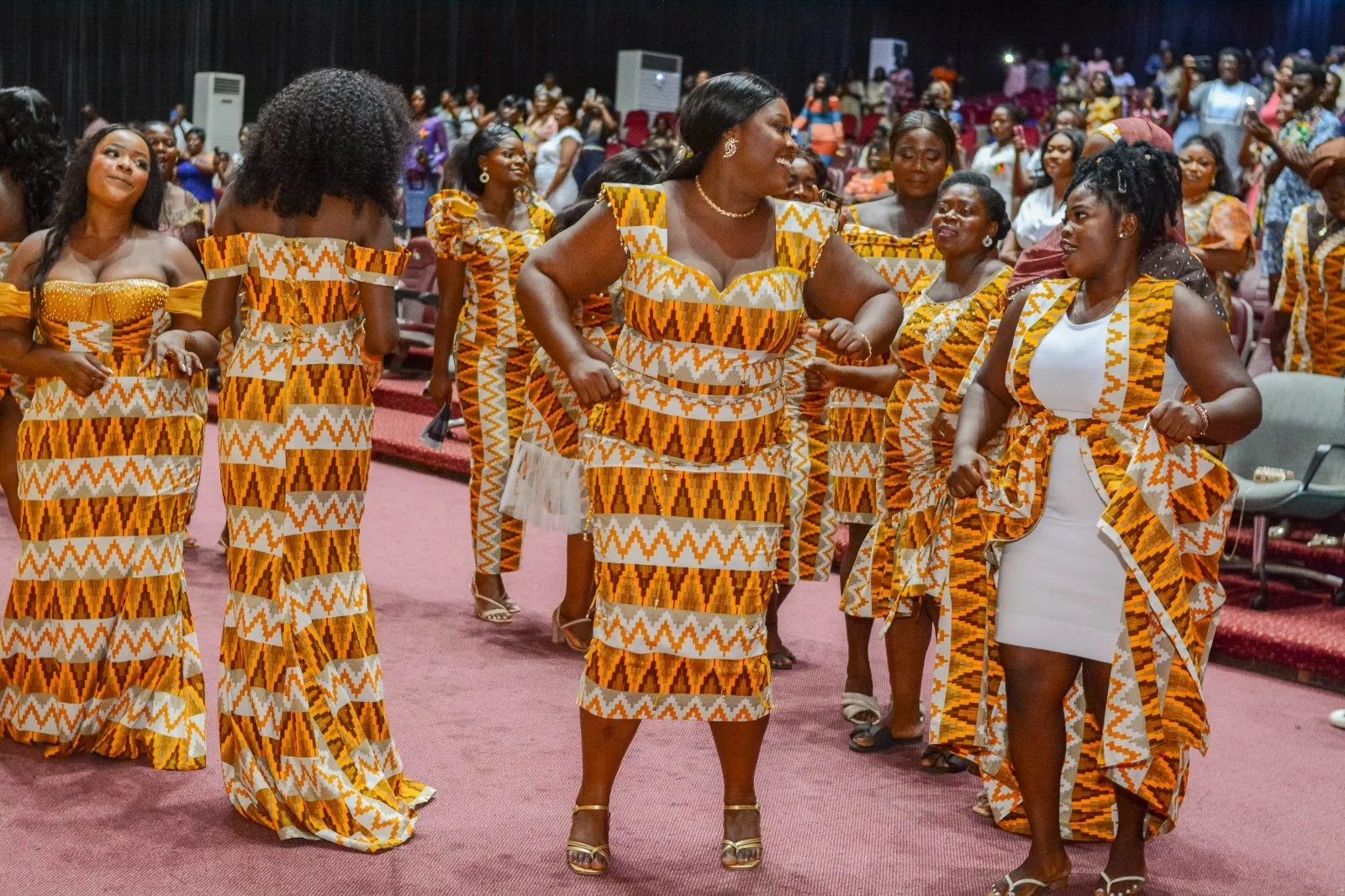
About 30 students on Sunday graduated from the 59th graduation ceremony of Cake Tekniks International, a privately-owned modern cake designing and sugar craft school in Accra.
During the ceremony, all graduates were presented with certificates while 13 of them also received professional diploma.
The founder of Cake Tekniks International, Mrs Jane Addo, said her outfit was dedicated to providing world standard skills, knowledge and hands-on training necessary for one to succeed worldwide in the culinary industry.
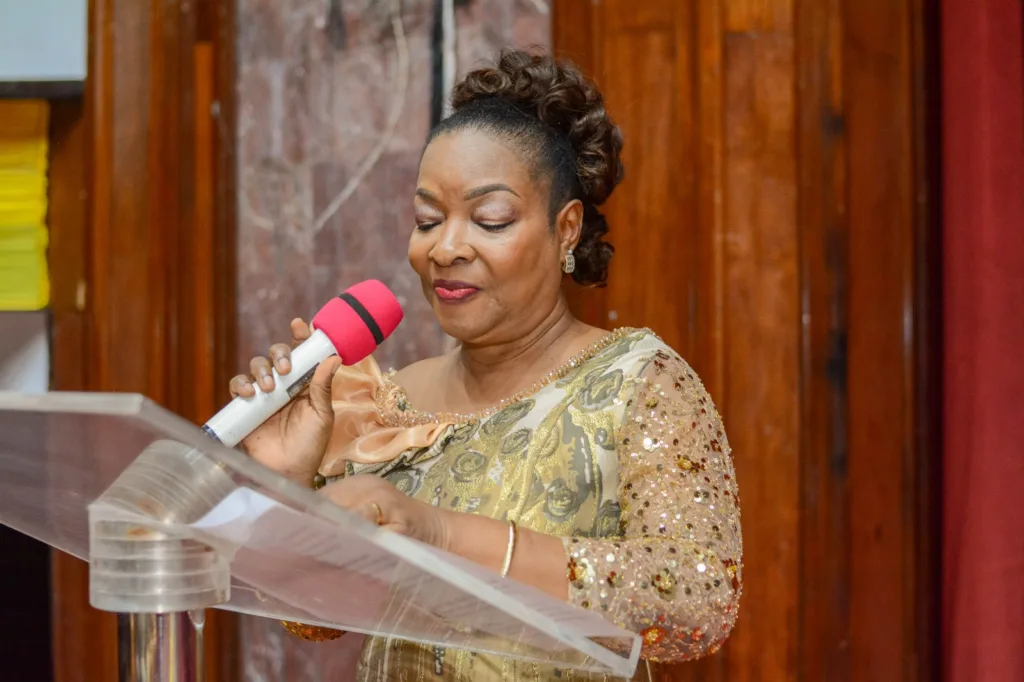
She encouraged the students to embrace the opportunities, challenges and experiences, mindful of the fact that they are well-equipped.
“Hold your heads up while you build a goodwill between your clients and yourselves,” she added.
Mrs Addo said the school was passionate about fostering the culture of creativity, motivation and excellence with the belief that every student had the potential to make a lasting impact in the culinary world.
The founder and leader of QA Consult, Mr Johnson Opoku-Boateng, said graduation was a witness to the unveiling of talents, passion and hard work and testament to months of dedication and hands-on-learning.
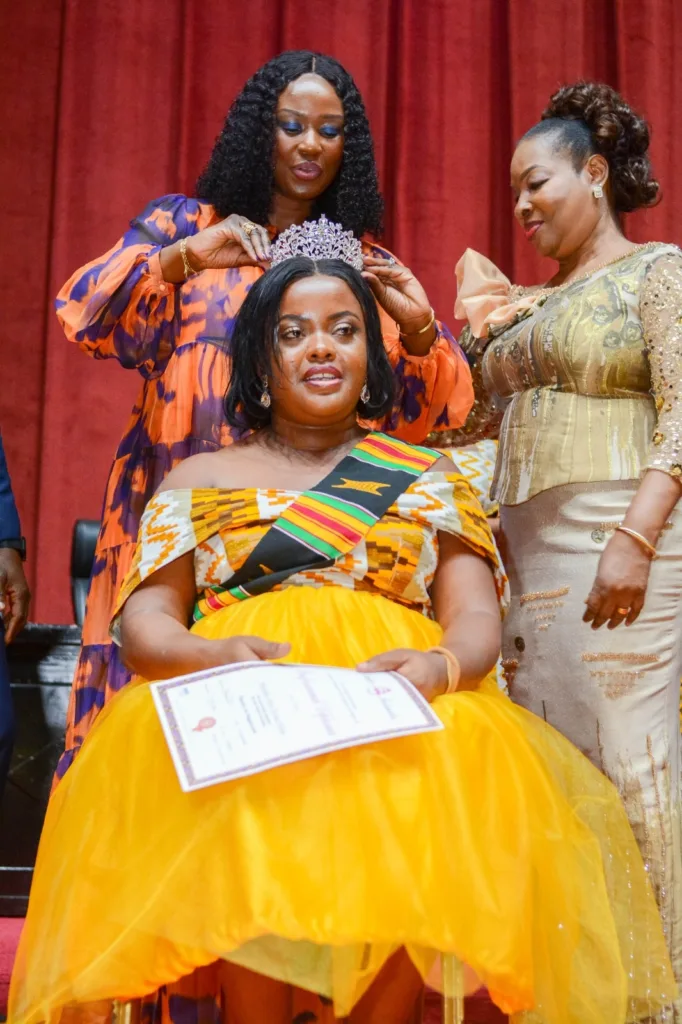

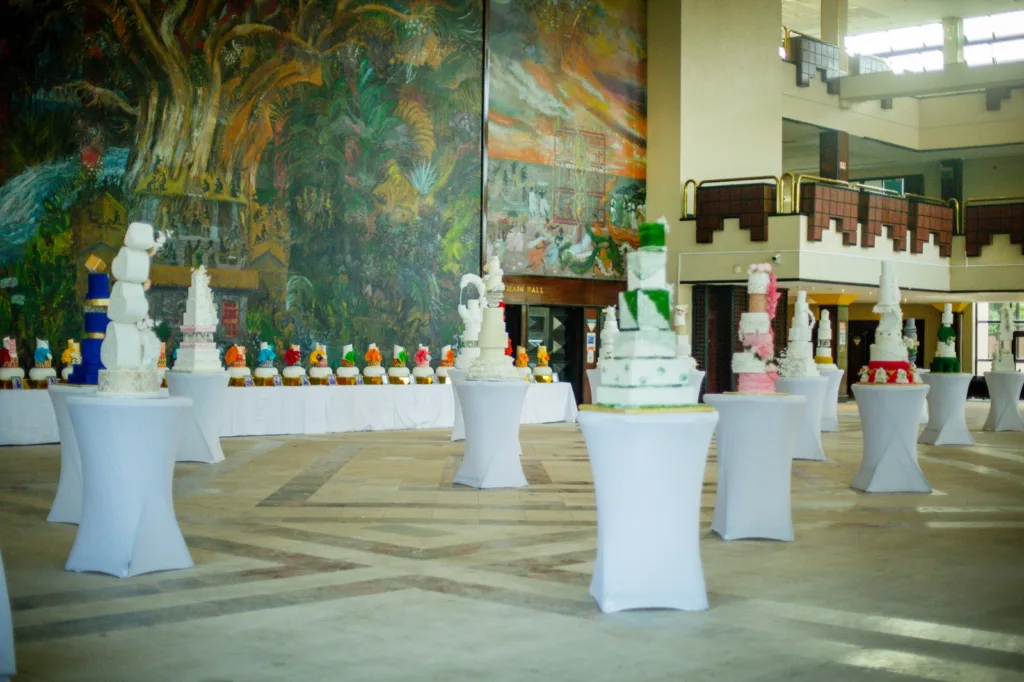
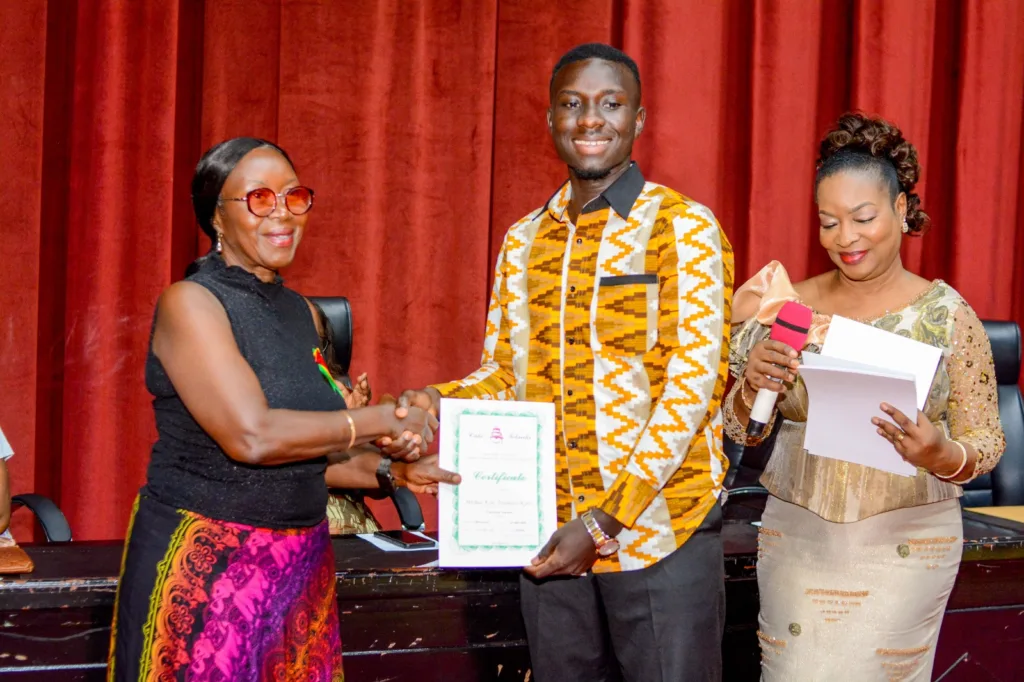

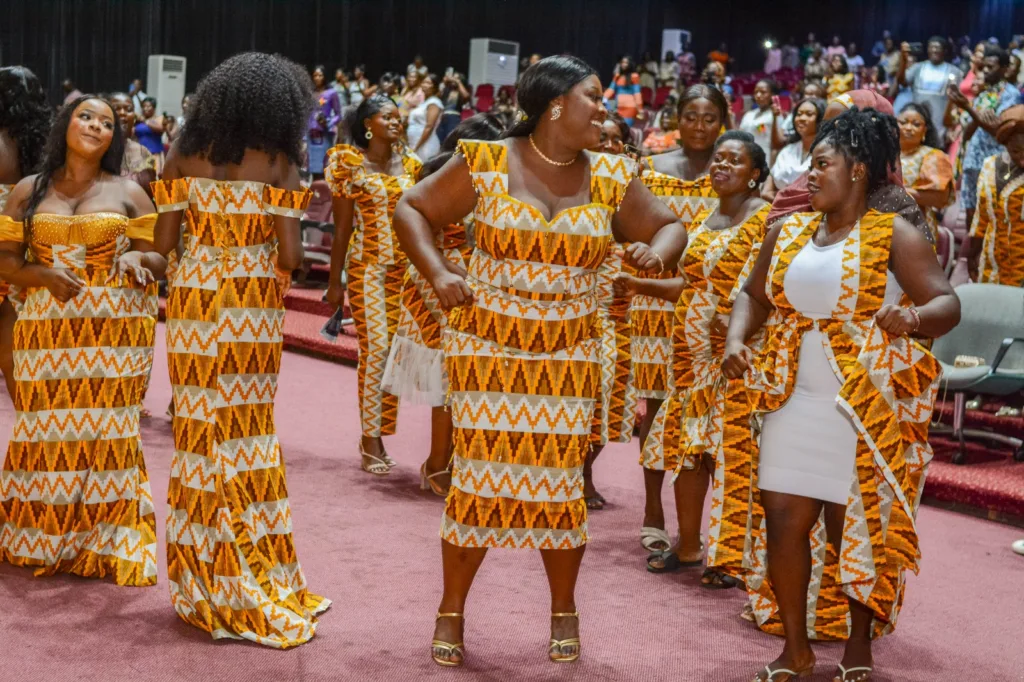
He urged the graduands to ensure that their cakes were safe and good for human health and that their success would be dependent on how well they serve, create and grow.
The event also saw the exhibition of cakes and pastries by the students.


receiving her certificate

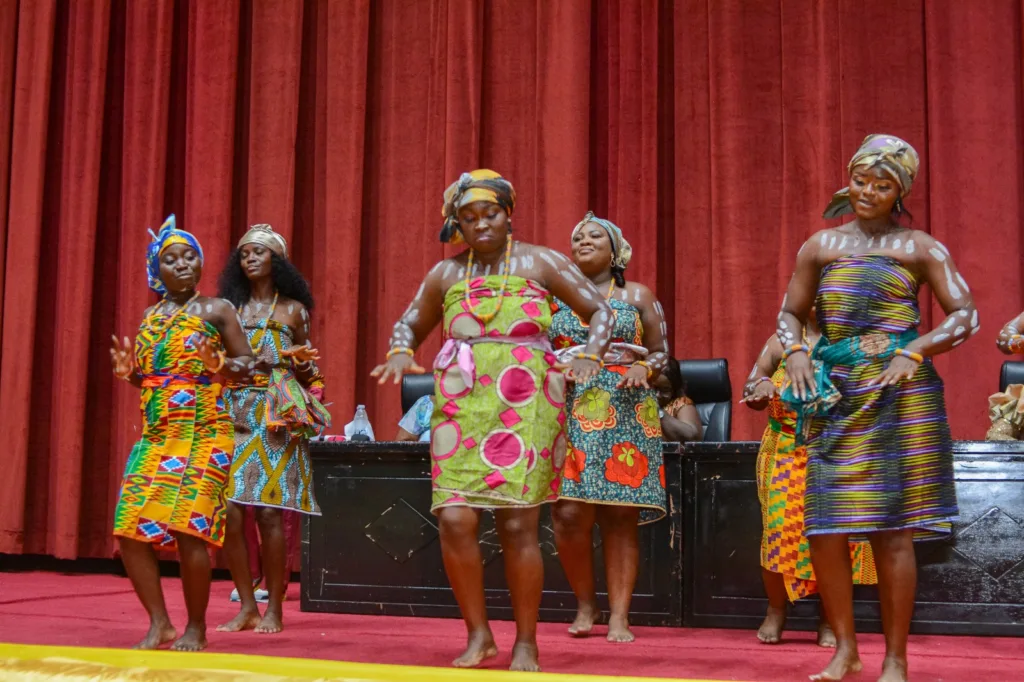
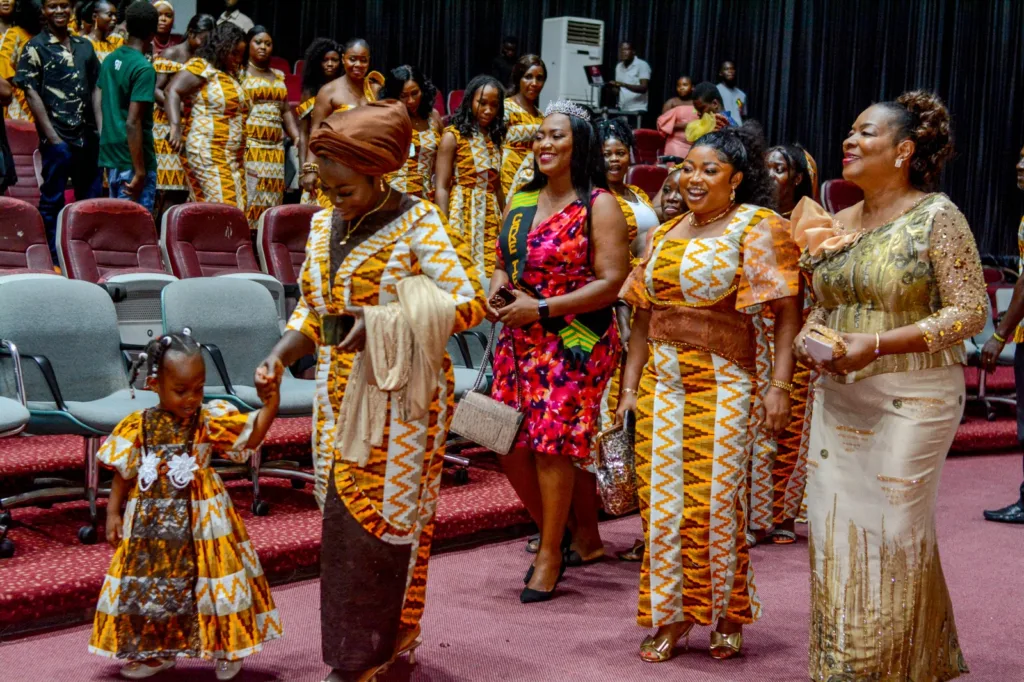
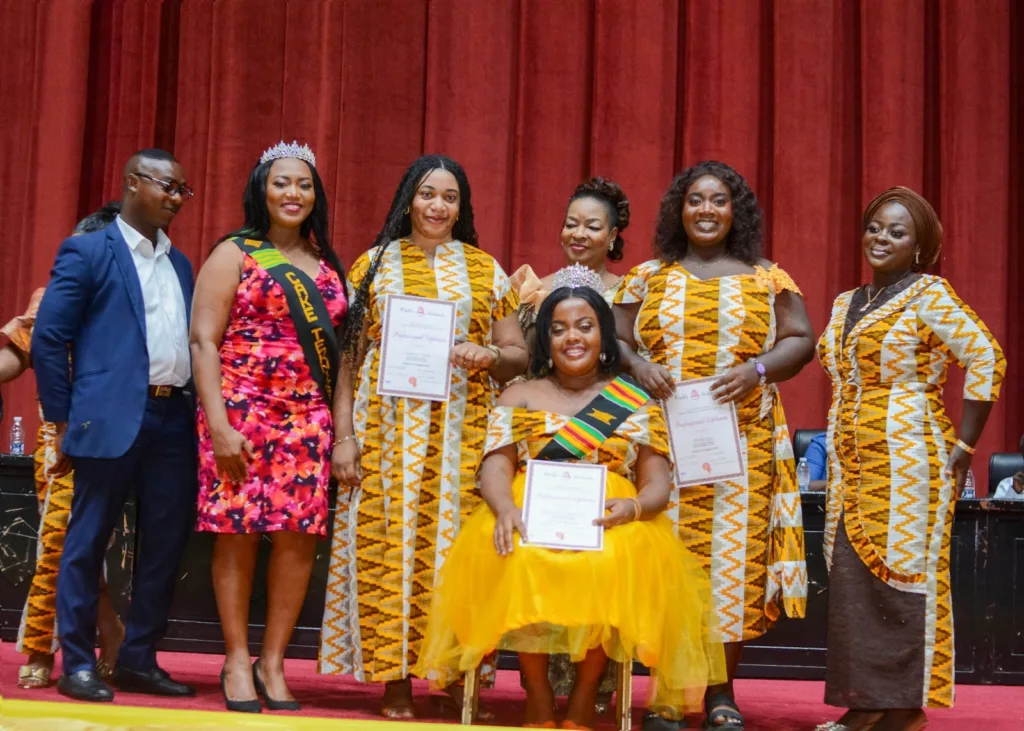
News
Volta College Foundation donates GH¢9,000 to 9-yr-old fire victim
Published
14 hours agoon
April 19, 2025
A delegation from the Volta College Foundation, a non-governmental organisation, has donated GH¢9,000.00 to the family of nine-year-old Victoria Atsoribo, who suffered severe burns in a fire accident at home.
The donation was made at the Korle-Bu Teaching Hospital, where Victoria is currently on admission and undergoing treatment.
Led by women’s organiser of the foundation, Madam Mawulawoe Amedorme and Deputy PRO, Ms Rebecca Gollo, the delegation said the NGO launched a support campaign for Victoria, with the aim to ease the financial burden on Victoria and her family.
Madam Amedorme said “thanks to the overwhelming generosity of our members and the general public, we were able to raise funds to support her treatment and recovery.”
Receiving the donation, Victoria’s uncle, Mr Bright Danquah Dumevi, expressed gratitude to the leadership and members of the foundation for their kindness and support.
He said Victoria was transferred from Margaret Marquart Hospital in Kpando to Korle Bu Teaching Hospital in Accra for specialised care.
According to Mr Dumevi, Victoria was currently undergoing planned staged skin grafting (surgery) as part of her treatment.
Your kind gesture has made a profound impact on her recovery journey, bringing hope and joy to her healing process.
He said the contributions from the foundation will help in taking care of Victoria’s bills, adding that “your support has alleviated a significant portion of the financial burden associated with her treatment, allowing her family to focus on her recovery.
He also appealed to the general public, benevolent individuals, and organisations to continue extending their support to Victoria to aid her recovery.

Tooth decay cases rises in Tema

Cake Tekniks holds 59th graduation ceremony

Volta College Foundation donates GH¢9,000 to 9-yr-old fire victim
Trending

 Politics7 months ago
Politics7 months agoVoter Register Discrepancies: NDC to stage nationwide protests against EC

 News8 months ago
News8 months agoArise Royals Montessori School Marks 2nd Graduation.

 Entertainment9 months ago
Entertainment9 months agoGhanaian musician Champions Gaza Peace with New Track

 News4 months ago
News4 months agoKing of Igbo Community in Ghana congratulates Mahama as President-elect of Ghana.

 More8 months ago
More8 months agoYoung people urged to develop their talents

 Entertainment10 months ago
Entertainment10 months agoSteps to receive an official GWR certificate – Details from mother of a Ghanaian record holder

 News10 months ago
News10 months agoCancer Support Network Foundation holds gala

 Tech9 months ago
Tech9 months agoWatch out for sharks: The bizarre history of internet outages













